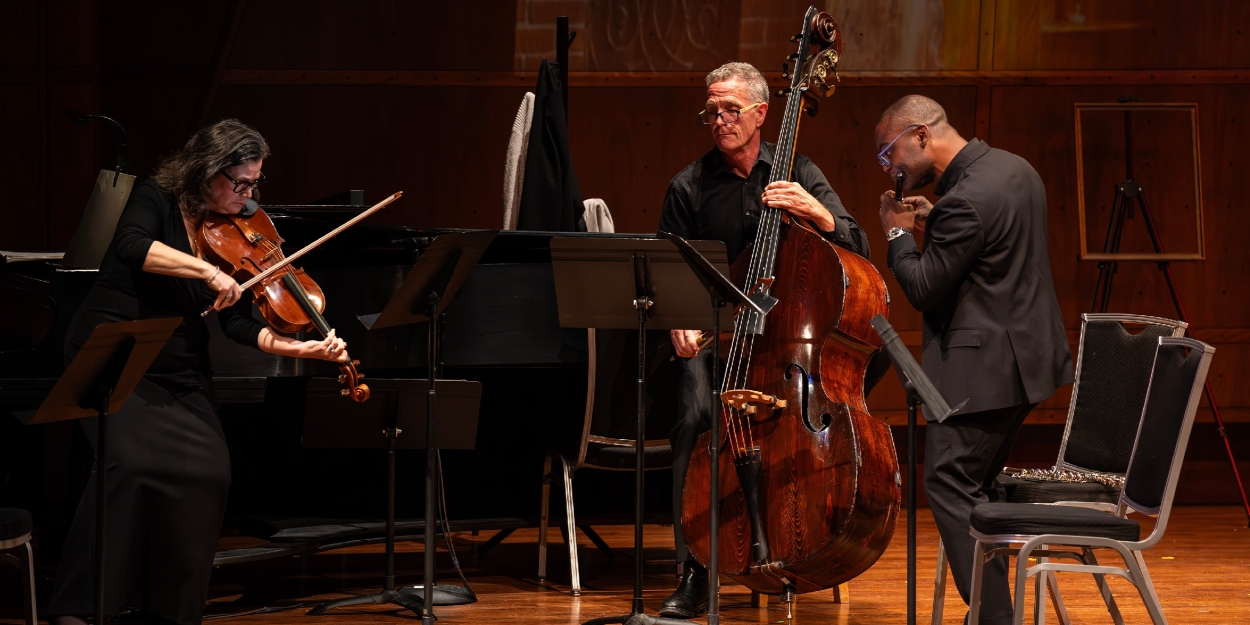Music of Remembrance to Open 24/25 season with PEACE IMAGINED
The performance will take place on Sunday, October 27, 2024 at 5:00 pm at Benaroya Hall.

This month, Music of Remembrance will open their 24/25 season with Peace Imagined, an evening of chamber music intended to express empathy and inspire action. For more than a quarter-century, the Seattle-based performing arts organization has built a reputation as the creative catalyst for testimonies for tomorrow – persuasive works that explore the consequences of intolerance. At its forming, MOR sought to rescue Holocaust-era composers’ music from undeserved obscurity. But as the Chicago Tribune writes, “These days, MOR’s purview is broader. Its productions urge audiences to apply lessons learned from the Holocaust – or, as is too often the case, ignored – to other human rights catastrophes.” Recent premieres have included works addressing the women’s rights struggle in Iran, the separation of families at the US-Mexico border, and the threat of nuclear war.
“Our mission continues to expand, driven by the belief that art can illuminate the lessons of the past in ways that resonate with us today,” said Artistic Director Mina Miller. “I hope people will come away from this concert with a renewed belief in the resilience of artists who have the courage to speak out and make a difference in this fragile and dangerous world that we all share.”
This season’s premieres bring the organization’s total commissions to 48 new works, including song cycles, chamber works, operas, film scores, and choreography – all using art to confront compelling issues in today’s world.
The Seattle debut of 2024 Emmy® Award-winning composer Milad Yousufi, a young Afghan artist whose life inspired a recent episode of Apple TV’s Little America, will be the centerpiece of MOR’s season opener. After witnessing a resurgence of the arts in Afghanistan following the first fall of the Taliban, Yousufi devoted himself to the future of music and culture in his native country. Yousufi is also a visual artist; his poetry, Persian calligraphy, and paintings (shown above) helped inform Imaginary Peace and I cried. Structurally, these works use Bhairavi, a Phrygian mode common to Afghanistan, and other melodies to convey a sense of sorrow and longing for home.
“In my work, I aim to create a meaningful dialogue that highlights the vibrancy of my culture while countering misconceptions,” said Yousufi. “This is an investment in the artistic heritage of Afghanistan, and I believe that a legacy can be forged here in the United States for future Afghan artists to draw upon. This vital connection will allow for a more profound recognition of the shared human experience, transcending geographical and cultural boundaries.”
Sándor Kuti was also a young composer on the rise in his era; but in 1945, he was murdered in a Nazi concentration camp. Nearly eight decades later, Kuti’s String Quartet No. 2 will finally receive its U.S. premiere. Securing the scores required a years-long endeavor of musicological sleuthing through Budapest, overcoming publishing challenges and the frustration of incomplete archival scores. The turning point came when Agnes Kory, a noted scholar of Hungarian music and specialist in the music of the Holocaust, located a living descendent of the composer, who was then moved to offer the parts for this performance.
“When I first started this organization, music from this era was simply not available,” said Artistic Director Mina Miller. “The search for Kuti’s score reminded me of our first years at MOR, which gave me immense appreciation for art that has endured the unfathomable. This full-circle moment exemplifies our commitment to preserve voices that could have been silenced forever.”
Audiences will also hear Seattle Symphony’s Demarre McGill and pianist Jessica Choe in a flute sonata by Erwin Schulhoff, a compelling musical innovator known for his embrace of modern styles in the years between the world wars. Frequent MOR collaborator soprano Vanessa Isiguen is featured in Simon Sargon’s musical setting of Primo Levi’s haunting literary witness to the Holocaust, depicting the battle to preserve human identity despite overwhelming odds. Pulitzer Prize finalist and previous MOR-commissioned composer Mary Kouyoumdjian’s Groung draws on both her background in experimental music and her heritage as a first-generation Armenian-American whose family was affected by the Armenian Genocide.
“Because my parents never spoke much about living in wartime, music has been my way of imagining what they experienced,” said composer Mary Kouyoumdjian. “If the music I write can do anything to humanize these experiences, then it’s successful. I actually want to overwhelm people. In your concert experience, you’re sitting in a comfy chair, nothing bad is going to happen to you, you’re safe. I almost think you can’t push that boundary far enough.”
Comments

Videos

